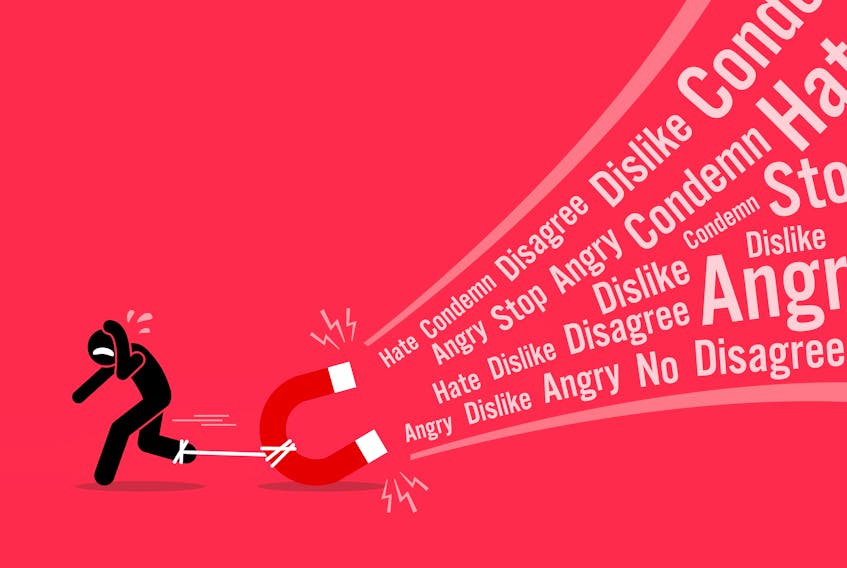Anyone who has ever watched CBC reporter David Cochrane at work knows that he’s a journalist for the digital age.
Even as he waits for a producer to signal in his earpiece that he’s on air, Cochrane works his phone constantly: I’ve always wondered which out be the first to wear out, his wrists or his thumbs.
He is e-connected near-constantly, the kind of journalist that, years ago, would work every door in a neighbourhood doggedly trying to gather the last piece of information everyone else has missed. I think he does it because he likes it; maybe he’s addicted to it.
All of that makes Friday’s decision by Cochrane a little fascinating. In a series of tweets, he announced he was bailing out of Twitter, that the social media site had become, for him, just too toxic.
The truth is, it’s a kind of harassment that, if it were happening in a regular workplace, would be dealt with immediately and decisively.
I believe it. If you look at what’s posted on prominent journalists’ accounts — anything from their social media to their email accounts — you’d be horrified. There’s everything from insults about their clothes, their bodies and their voices to graphic descriptions of — well, use your imagination. And even if you do, you’re unlikely to top what journalists — especially female journalists — deal with on a daily basis.
Cochrane said stop — and he’s right.
Remember, this is their workplace. For journalists, having an electronic ear to the ground is a crucial part of the business. Tips and hints arrive that way. Interesting stories you might never have seen turn up that way, too. Most outlets expect their journalists to have a public presence. That means having a Twitter account, and using it often enough to add what your employer sees as value.
But sites like Twitter can also be a sewer, where people make up for their lack of real information or legitimate argument with sheer bullying stridency.
I use Twitter all the time. It’s a good tip sheet for what’s going on, especially during a pandemic when many people are away from their traditional workplaces. No one bothers to come after me; maybe I’m not mainstream enough. Maybe I’m too flippant, posting anything from pictures of dinner to photos of parasites that attack fish by eating the fish’s tongue and replacing it with themselves.
It’s clear, though, that others in journalism are not so lucky.
I think of it as, in some ways, becoming the pool of sludge that comments on online news stories used to be — and still are, with some sites. Early on in the world of comments, you’d occasionally get well-thought-out responses to stories. Quickly, though, a new commenter with actual facts would squashed by one of several comment denizens who simply exist and squat there to belittle, insult and demean. I was delighted when comments sections went dark — not because I think people don’t have a right to voice their opinions, but because I don’t anyone has the right to endlessly insult others without any sort of repercussions.
It makes it hard to do your job if you know everything you post will garner repeated personal attacks.
If you were a doctor, would you like to have some stranger sitting in the examining room, announcing to all in earshot what a quack you were?
If you were pouring cement, how long would you suffer someone nearby yelling “you’re too stupid to make a sidewalk,” before you went over to have a little word?
The truth is, it’s a kind of harassment that, if it were happening in a regular workplace, would be dealt with immediately and decisively.
Turning it off might be exactly the right thing to do.
Russell Wangersky’s column appears in SaltWire newspapers and websites across Atlantic Canada.









